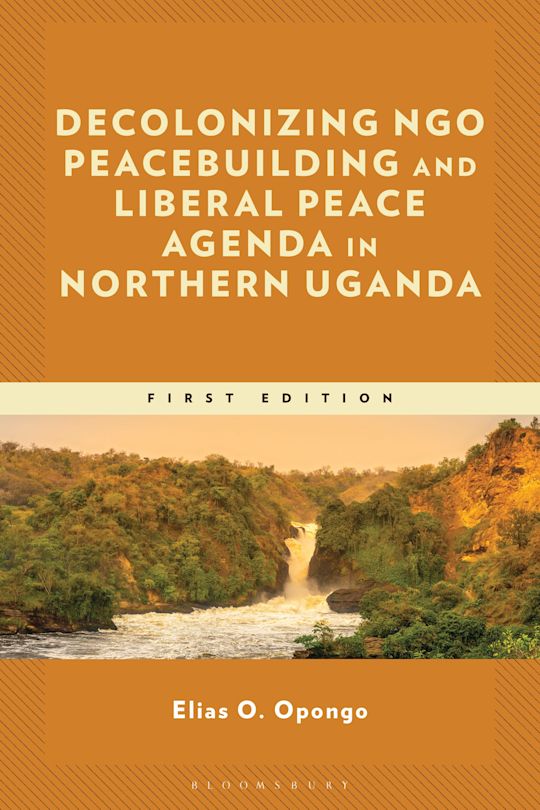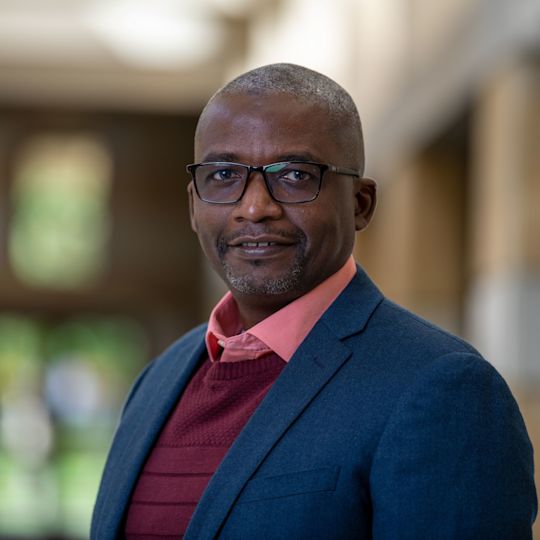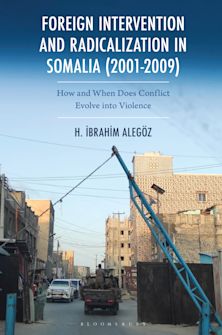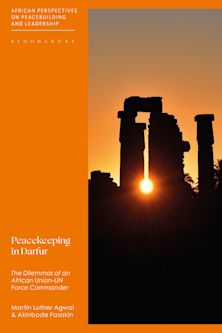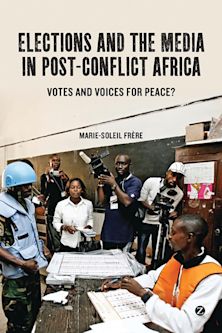- Home
- ACADEMIC
- African & Africana Studies
- Conflict and Peace in Africa
- Decolonizing NGO Peacebuilding and Liberal Peace Agenda in Northern Uganda
Decolonizing NGO Peacebuilding and Liberal Peace Agenda in Northern Uganda
Decolonizing NGO Peacebuilding and Liberal Peace Agenda in Northern Uganda
You must sign in to add this item to your wishlist. Please sign in or create an account
Description
Critically examining how Western-funded NGO interventions have shaped post-conflict recovery in Northern Uganda, Elias O. Opongo argues that the liberal peace agenda-focused on democracy promotion, market reforms, and human rights-often marginalizes local agency and undermines culturally rooted approaches to peacebuilding.
Drawing on extensive fieldwork and grounded theory, Opongo explores how these externally driven models disconnect from the lived realities of conflict-affected communities. He introduces relational constructionism as a framework that emphasizes participatory, context-sensitive, and indigenous approaches-such as the Acholi Mato Oput ritual-that center dialogue, reintegration, and restorative justice.
The book also critiques the role of international actors, particularly the International Criminal Court (ICC), whose interventions can clash with local reconciliation efforts. Opongo's findings in Northern Uganda offer critical insights for other post-conflict African contexts dominated by donor-driven peacebuilding. He calls for a decolonial shift toward frameworks that restore African agency, reduce dependency, and prioritize community-led solutions for sustainable peace. This book is essential reading for scholars, practitioners, and policymakers seeking more inclusive, grounded, and transformative peacebuilding models in Africa and beyond.
Table of Contents
Introduction
1. Decoloniality and Peacebuilding: Reframing NGO Roles and Approaches
2. Northern Uganda Protracted Conflict and the Elusive Search for Peace
3. Liberal Peacebuilding Influence on NGO Peacebuilding in Northern Uganda
4. Decolonizing the International Criminal Court and Implications on Peacebuilding in Uganda
5. Relational Constructionism and Decolonization of NGO Peacebuilding
6. Decolonizing Dialogue in NGO Peacebuilding: Dynamics Between Donor Power and Local Agency
Conclusion
Bibliography
Index
About the Author
Product details

| Published | 19 Feb 2026 |
|---|---|
| Format | Ebook (PDF) |
| Edition | 1st |
| Extent | 256 |
| ISBN | 9781666966060 |
| Imprint | Bloomsbury Academic |
| Illustrations | 1 table |
| Publisher | Bloomsbury Publishing |
About the contributors
Reviews
-
Throughout this book, Elias O. Opongo challenges Western-led liberal peacebuilding perspectives in Northern Uganda, exposing their contextual limits. He, therefore, advocates for community-based, culturally rooted alternatives that speak to the realities of the people. Drawing on Acholi traditions and local agency, this book offers a decolonial framework for sustainable peace, making it essential reading for scholars and practitioners rethinking global peace interventions. It is a suitable piece for diverse range of disciplines, and particularly those that touch on conflicts, security, and peacebuilding models.
Susan M. Kilonzo, Professor of Sociology of Religion, Maseno University, Kenya
-
In the last decade or so, African scholars in particular, and Black scholars more generally have seen an increase in the popularization of decolonizing knowledge. Opongo's book, however, does not employ decolonization as a fashionable motif, but instead truly explores and interrogates decolonizing the NGO peacebuilding project. Using Northern Uganda as his case, Opongo shows how efforts to build and sustain peace can be successful when conflicts are read in their long durée, when they foreground local knowledge and traditions, and if the communities involved are respected as knowers and experts. At the same time, this book highlights a critically nuanced discussion of many taken-for-granted concepts such as democracy, human rights, international NGO, neoliberalism, security sector reforms, and even peace. For this reason, this book is an important reading from a respected scholar, delivered in an accessible style, that will be appreciated by scholars across political science, history, religion, peace and security and African studies.
Akosua Adomako Ampofo, Professor of African and Gender Studies, University of Ghana, Ghana









